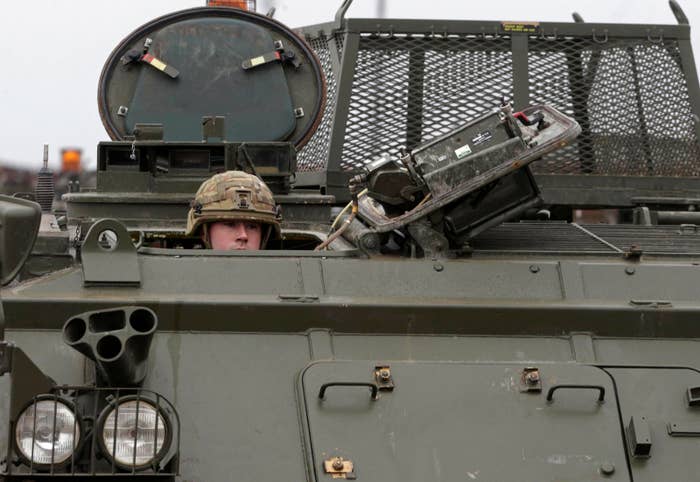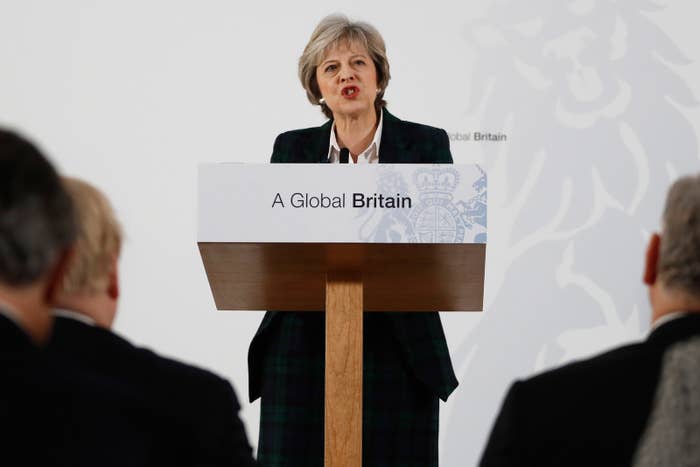
The UK wants to develop a “deep security partnership” with the European Union post-Brexit with a series of proposals that appear to be similar to existing arrangements.
In a paper published on Tuesday – the 12th Brexit position paper in recent weeks – the UK lays out a series of “offers” to the EU relating to foreign policy, defence and security, and international development.
Britain is proposing an arrangement that is "deeper than any current third country relationship".
“The UK and the EU should have regular close consultations on foreign and security policy issues, with the option to agree joint positions,” the document reads.
Such consultations would allow the EU27 – the remaining member states – and the UK to continue to cooperate and align positions on issues of mutual interest after Britain is no longer party to the EU's official decision-making processes. Issues could include sanctions and cooperation in the Western Balkans or immigration.
“The UK is establishing its own legal framework for sanctions but continues to see a strong mutual interest in cooperation and collaboration with European partners,” the document continues.
The UK also wants to continue to collaborate closely with the EU and “will continue to use its international development budget through its international development partnerships".
Such a relationship could see the UK continue to contribute financially to the EU’s development funds. It is understood the government sees this as an opportunity to explore a new approach when how the EU funds international development is up for discussion in 2020.
And, in an area that is bound to cause controversy among the right-wing press and hardcore Brexiters, the UK is also offering to continue contributing to the EU’s defence missions and operations with military assets and planning. It says it will also help with the furthering of its Common Security and Defence Policy.
The paper does not rule out that this involvement could include financial contributions to the EU's new defence funds.
Britain’s offer also covers the sharing of classified information as well as continued collaboration on cybersecurity and counterterrorism.
The document appears to signify a significant shift in tone to Theresa May’s Lancaster House speech, where it was perceived that the prime minister was threatening to use defence and security as a bargaining chip if a beneficial trade deal with the EU could not be negotiated.

The purpose of this week's paper was to add some initial detail to the intention, indicated by both sides, to maintain a close defence and security relationship after Britain exits the EU in 2019.
"The UK has a historic deep belief in the same values that European stands for – peace, democracy, freedom and the rule of law," it states, adding that it was "unconditionally committed to maintaining European security".
The paper also emphasises Britain and the EU's shared values and priorities as well as shared threats and the common goal of maintaining a rules-based international system.
Defence secretary Michael Fallon said: “At a time of increased threats and international instability the UK remains unwavering in its commitment to uphold European security. With the largest defence budget in Europe, the largest Navy British troops and planes deployed across land, air and sea in Europe, our role in the continent’s defence has never been more vital.
“As we leave the EU, the UK and our European allies will ensure a close partnership that meets these shared challenges head-on.”
The European Council negotiating guidelines state the EU is willing to establish partnerships with the UK in areas unrelated to trade, in particular the fight against terrorism and international crime, as well as security defence and foreign policy.
It remains unclear what would happen if the two sides fail to reach an overall agreement on security.
Seventeen of the 22 pages of the paper published on Tuesday are dedicated to listing the current UK and EU security and defence relationship rather than concrete proposals for any future relationship. It lays out Britain’s role in NATO missions, counterterrorism, and bilateral relations as well as its part in EU operations off the Horn of Africa and in the Mediterranean.
The UK is the only European country that meets both the NATO target of spending 2% of GDP on defence and the UN target of spending 0.7% of gross national income on international developments.
